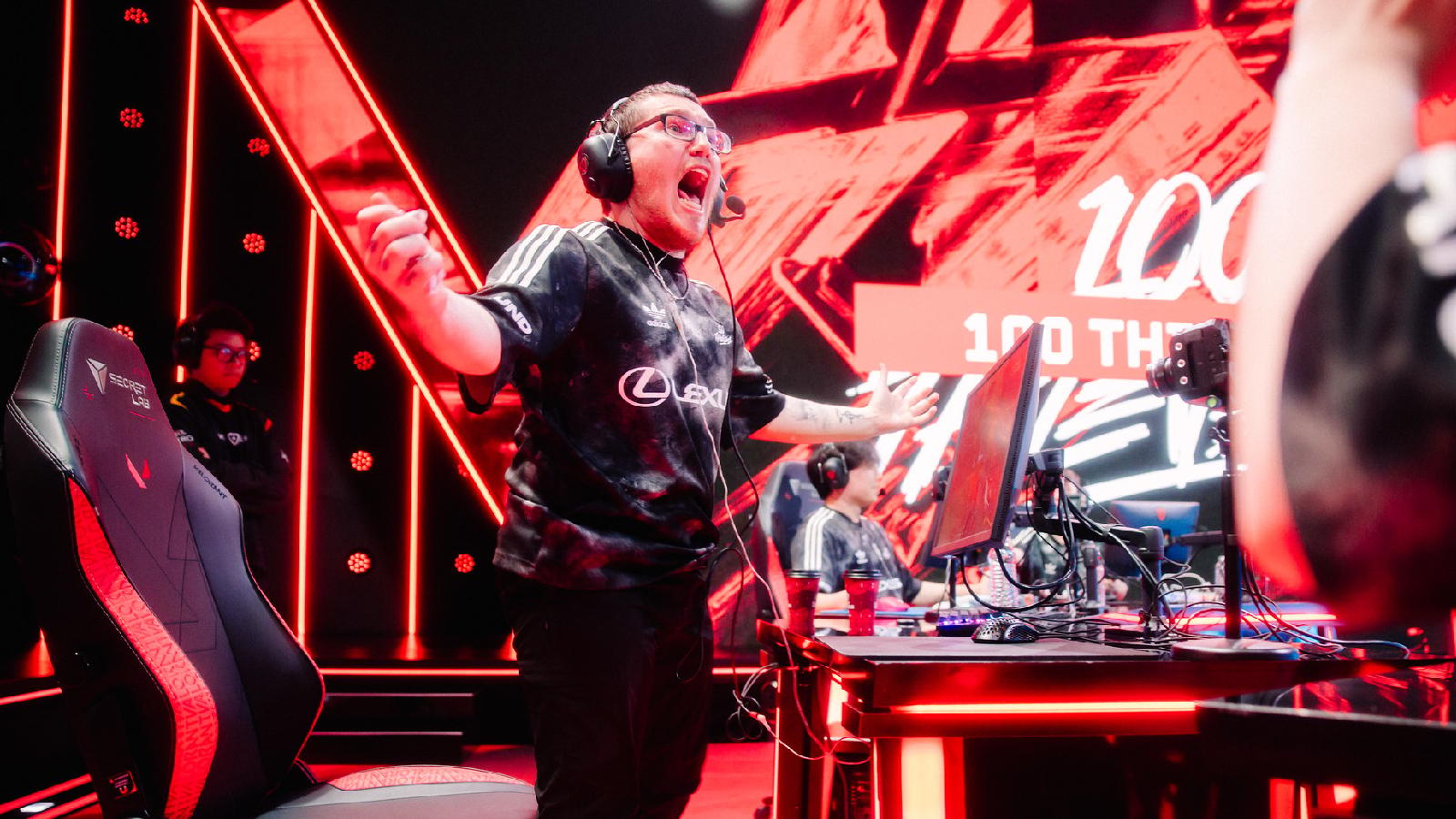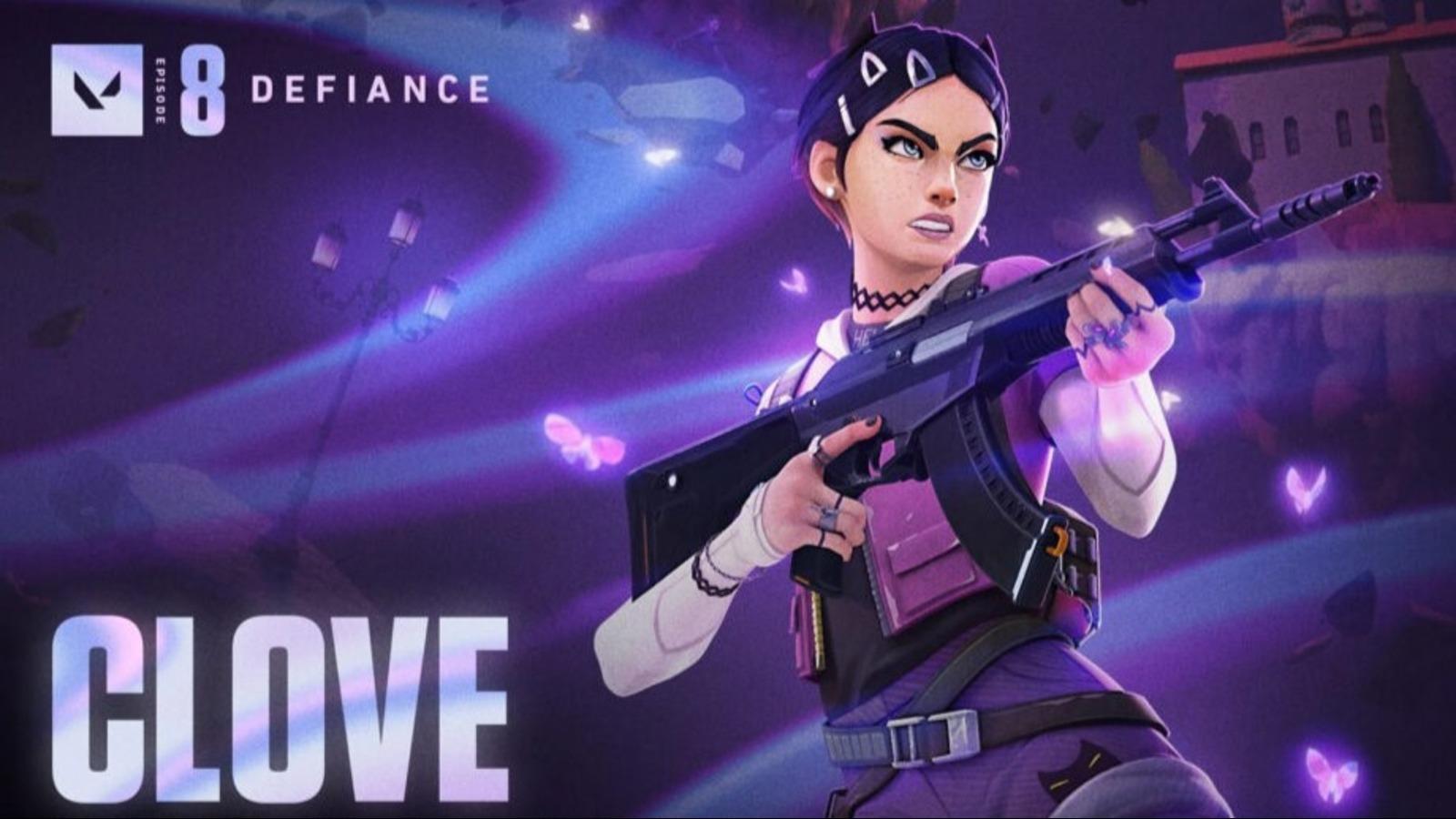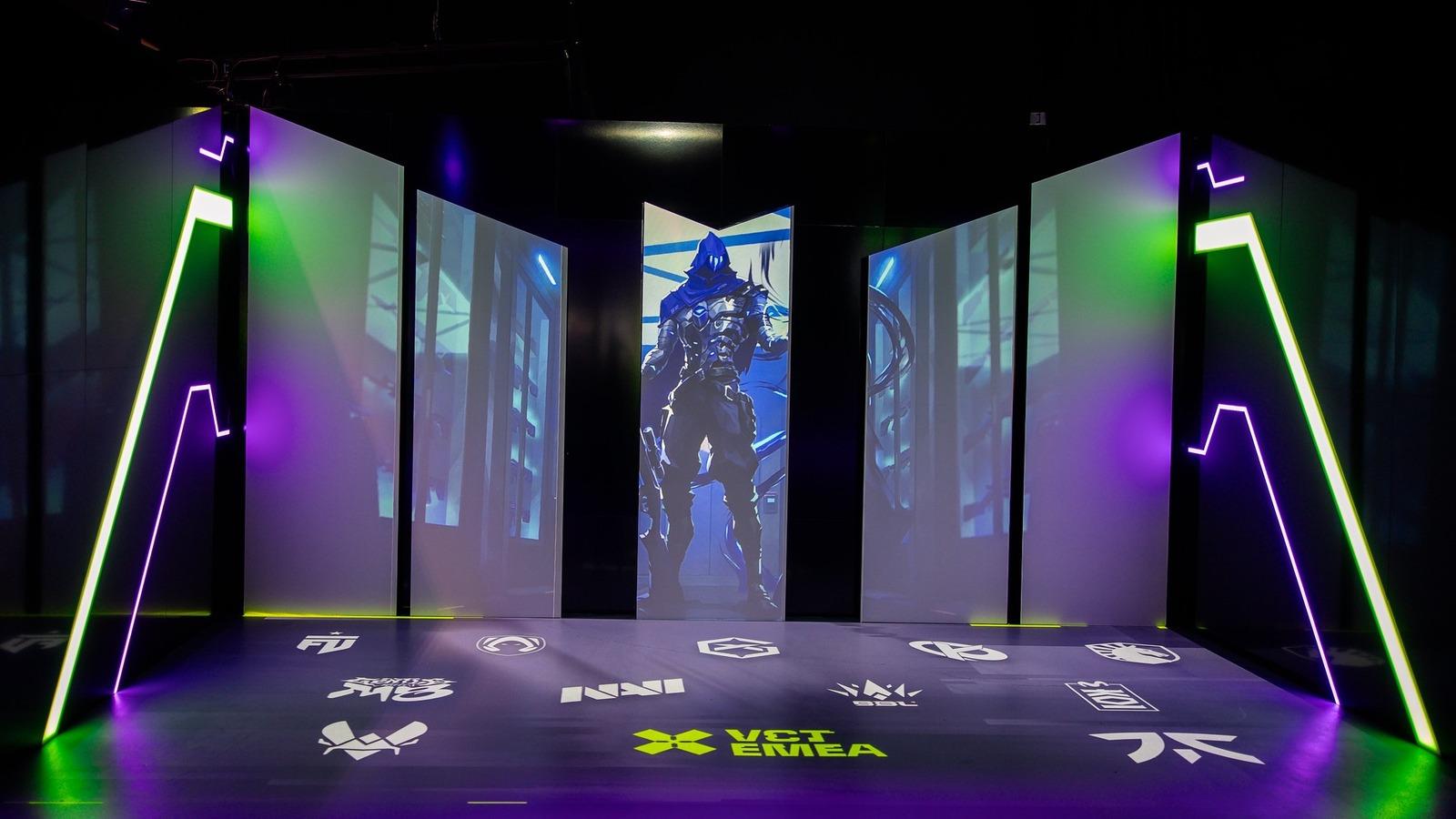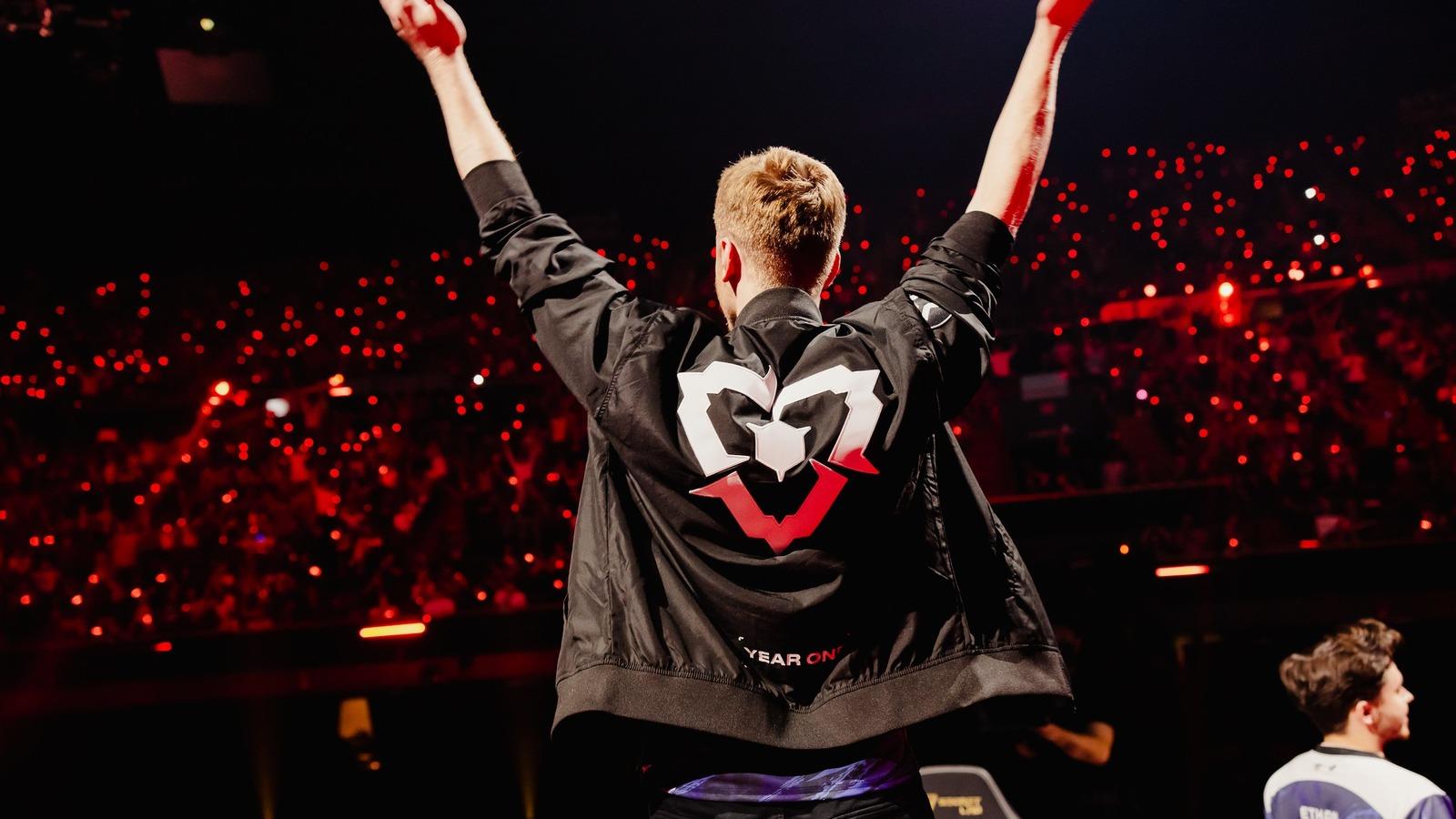Vitality’s Salah: The remarkable story of Valorant’s youngest top head coach
 Team Vitality
Team VitalityTeam Vitality announced that the organization had signed Salah ‘Salah’ Barakat, a 22-year-old, as its head coach on October 10. The young tactical mind has been given the reins of Vitality’s Valorant roster and has proved that he is wiser beyond his years.
Salah has been around the block in Valorant’s short life span as an esport. The British-Turkish coach has been a part of seven teams before Vitality picked him up to steer its Valorant team, and he said he has learned a lot since he started out coaching one of the best amateur sides in early 2020.
“Being so young, I got to experience seven years’ worth of coaching in two years,” Salah said in an interview with Dexerto.
“I have coached in different cultures, in different teams, in different countries, in different regions, at different levels. I think for me, that has helped big time. So it’s not something that happened on purpose, but it’s something that I’m happy that happened in the end.”
His coaching journey took him to OG LDN UTD for the EMEA Last Chance Qualifier before Valorant Champions 2022 and he became a hot commodity on the free agent market ahead of the 2023 season. Salah said that while he did have talks with other organizations, the prospect of building something with Vitality was something he couldn’t pass up on.
“I wanted to be part of an org that I could share things with, that has the same vision and goals, and that is more than a Valorant team” Salah said.
He said Vitality didn’t want to start trialing players or building any kind of roster before getting a coach involved. Salah hit the ground running building a yet-to-be-announced squad that fit together in terms of culture and personality, instead of going after big names. Vitality has been linked with Tomas ‘Destrian’ Linikas, Karel ‘Twisten’ Ašenbrener and Michał ‘MOLSI’ Łącki, who would join Santeri ‘BONECOLD’ Sassi and Jokūbas ‘ceNder’ Labutis on the active roster.
But to get to this point in his career, Salah had to prove himself as a coach and learn how to lead a squad. He learned early on that just having the strategy or the in-game knowledge was not what ultimately garnered respect from his peers and players.
A crash course in Valorant coaching
After helping the amateur team Bonk to a smattering of second-place finishes in EMEA, Salah took his talents to North America and FaZe Clan. He coached the team for about four months remotely and left right before First Strike: North America in December.
Going from an unsigned squad to one of the most recognizable brands in all of gaming was a big jump for the then-20-year-old, a learning experience that sticks with him to this day.
“I think I was still very raw and still very inexperienced. I think the entire situation was, like, I was good, I was doing good things. But there were certain aspects of it that I couldn’t handle, if that makes sense,” Salah said.
“I failed, maybe keeping a team in check, keeping a team in line. I let certain things run me over and so things overpowered me. In the end, it became this thing where it’s, like, Faze Clan is the kind of team where, whether by choice or not, the players were more in control than anything.”
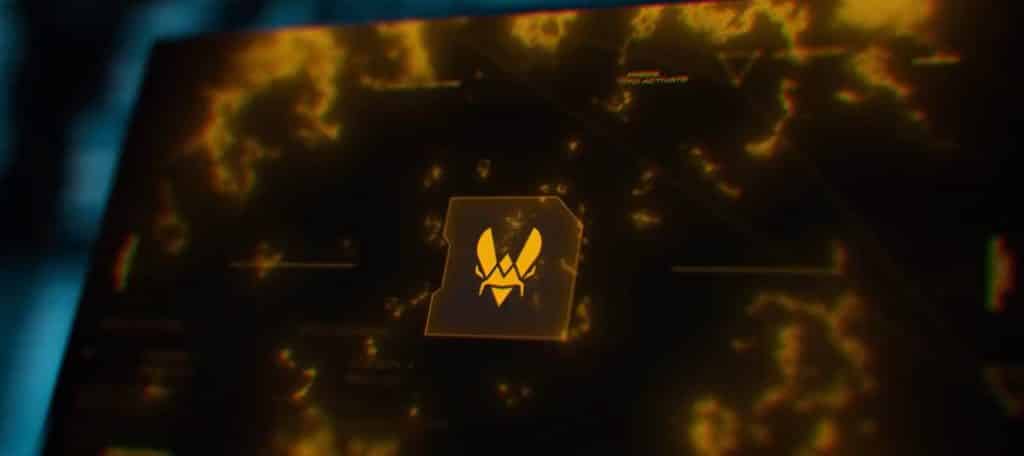 Vitality Twitter
Vitality TwitterSalah lost the power struggle within the team and moved on to another unsigned team before joining Turkish side Fire Flux Esports. From his time in FaZe, Salah said he learned that he needed to have a strong personality and to always be an authority.
Teams always respected him when he was brought in as coach, despite his age, because of his understanding of Valorant and because he “provided them something that they were lacking at that time.” However, others saw his age as a weakness or something that could hold him back.
Among his coaching peers were those who told him that he couldn’t be a head coach with his age.
“I think a lot of coaches get stuck in this trap where they think that their entire ability to coach, the reason why they can coach is that they’ve spent 15 years in esports, or because they played CS 1.5, or because they’re older than somebody or they lead the team purely based on age and, you know, being a dad,” Salah said.
“I think they can’t understand what they don’t want to accept, or they won’t accept the fact that someone can be in the same position as them without that.”
Salah’s future with Vitality
Salah, who is two years into a law degree at the University of Nottingham, will get to debut the roster he crafted with Vitality against top competition in 2023. The young coach said that he is building a team that is going to be a cohesive unit in and out of the server with players who are similar in terms of temperament and won’t clash with each other.
One of the biggest things Salah said he is looking forward to next year is the league system. Like the rest of the teams, players, and coaches in the Valorant Champions Tour circuit, he is happy that he won’t have to compete in qualifier after qualifier anymore and that he has found some stability in Riot Games’ esport.
Valorant will become a “lifestyle” when the leagues pick up again and teams get regular access to LAN competition week in and week out, according to Salah. When VCT 2023 kicks off, he will get his first chance to lead a team in a LAN environment, reaching another milestone in his burgeoning career.
“I’m excited for that to be the first one,” Salah said about the upcoming VCT Kickoff tournament. “That’s a really, really cool way to start a LAN career.”
